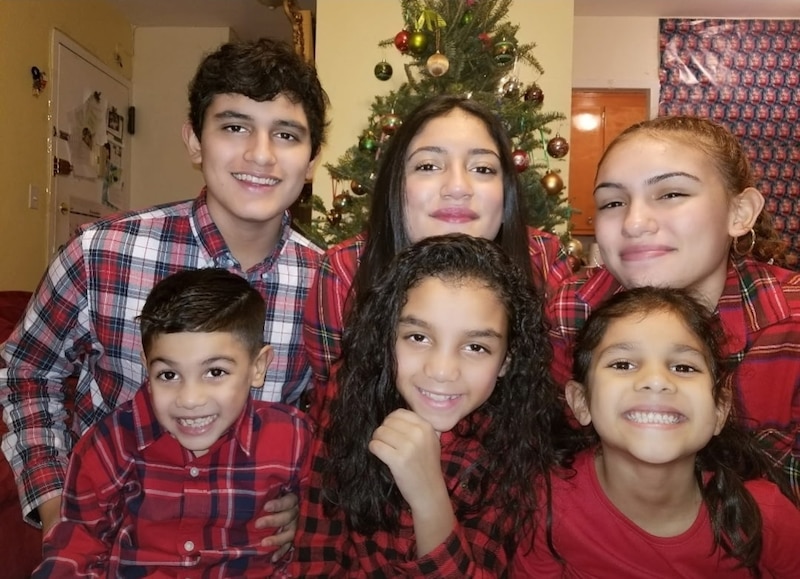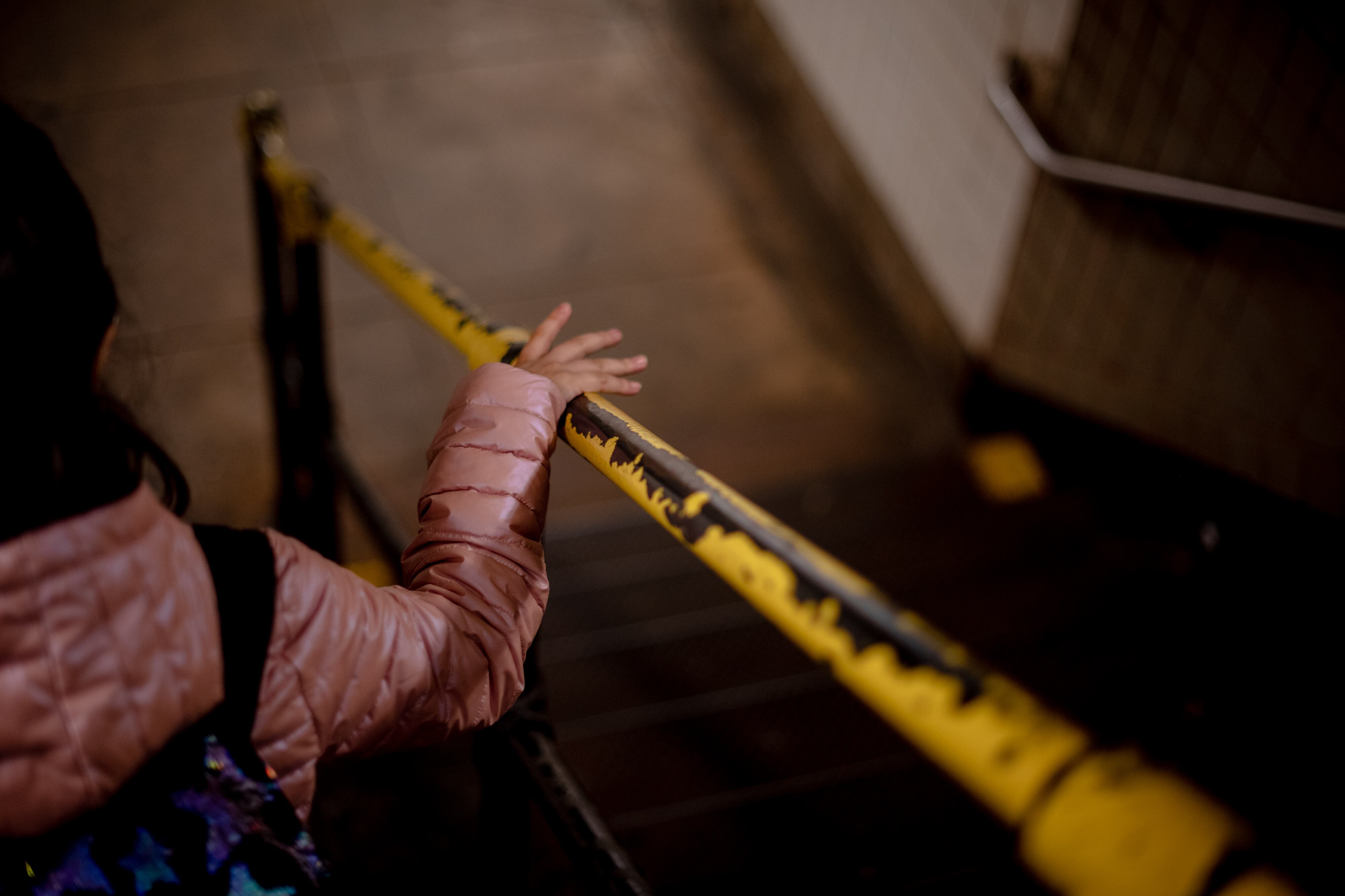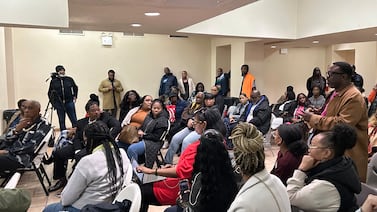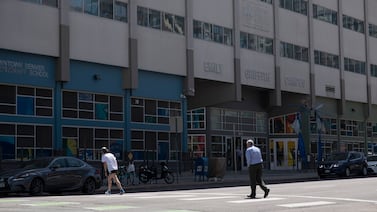Sign up for Chalkbeat New York’s free daily newsletter to get essential news about NYC’s public schools delivered to your inbox.
In the days after last month’s inauguration of President Donald Trump, Bronx high school principal Norma Vega felt she had to do something to address growing chatter from students about rumored sightings of federal immigration officers in their neighborhoods.
So she visited every classroom to give students a primer on what to do if they encountered law enforcement on the street.
“My job was to scare them into, ‘Don’t do anything stupid, please,’” said Vega, principal of ELLIS Preparatory Academy, which caters exclusively to newly-arrived immigrants in grades 9-12.
Much of the public attention on how Trump’s deportation plans may affect students has so far focused on the possibility of federal agents showing up at schools — fueled by an executive order allowing Immigration and Customs Enforcement, or ICE, to make arrests at schools, churches and other sensitive locations. Trump has promised “mass deportations” and has threatened to punish local officials who stand in the way.
Fears of ICE showing up at schools remain acute for many students and families, prompting some parents to keep kids out of school. But for many of New York City’s immigrant students, who often crisscross the five boroughs on public transit getting to and from school and jobs, the fear of encountering officers outside of school is an even more immediate concern.
That has led families and educators across the city to hold conversations with their kids in recent weeks about what to do if they encounter immigration agents — an immigration-focused variation on “the talk” that many Black and Latino families have long had with their kids about what to do if they’re stopped by police.
“It’s the same talk, unfortunately, that our brown fathers and mothers have to have with their brown sons,” Vega said.
Vega advised her students not to turn over any documents to someone they don’t know, but to politely say, “I don’t know you,” and keep walking. She told them not to resist if a law enforcement officer did produce identification and attempt to detain them.
“Your goal is to walk out as quickly as possible, because they have no right to stop you, no right to put their hands on you, no right to harass you,” she told students.
In addition to the conversations, some schools are handing out “red cards” that students can hand to law enforcement if they’re stopped. The cards assert the rights of people stopped by law enforcement not to speak with them or consent to a search.
New York City has sanctuary laws in place that limit the cooperation of local law enforcement with ICE to carry out deportations. The city school system’s policies also prohibit federal agents from entering schools unless they have a warrant signed by a judge or there are “exigent circumstances.”
But Mayor Eric Adams has said he would like to roll back those sanctuary policies, and has boosted the city’s cooperation with federal immigration authorities — issuing an executive order on Thursday allowing ICE to operate on Rikers Island. The U.S. Justice Department’s recent move to drop federal corruption charges against Adams has set off alarm bells for advocates and lawmakers who say that Adams is beholden to Trump and will aid his immigration agenda.
The city teachers union last week said it had not received any reports of ICE visiting city schools. But federal immigration agents have carried out several high-profile immigration raids, and arrested about 100 people in the first week of the Trump administration.
During a Fox News appearance Friday morning with Trump’s “border czar” Tom Homan to tout their collaboration, Adams encouraged undocumented immigrants to keep using city services, saying “everyday people who are here, they’re moving to be documented, if they are going to school, working, paying taxes, then they should be able to [use] police services, hospital services, children should go to school.”
Rampant rumors of ICE sightings in some immigrant communities
Fahima Akter, a 17-year-old senior at Bronx River High School who immigrated to the U.S. in 2019 from Bangladesh, said her dad recently witnessed someone taken away by law enforcement after they couldn’t produce the documents the officers asked for. Since then, he has told his daughter she needs to keep her green card – proof of legal permanent residency – on her.
“Just in case if the police stop us on the street and ask for this, we can get them information and let them know that we are legally here,” she said.
The school’s student newspaper, the Bronx River News, recently ran a story on a student who said he had several encounters with immigration agents outside of school.
Akter said she previously felt positive about the police, but since the talk with her dad, has been scared to approach any law enforcement. Her parents have instructed her to go straight to school and back to minimize the time she’s out in public, she said.
“Now, every time I see a police officer, I get anxious and nervous around them,” Akter said, even though she is in the country legally.
The conversations are also happening in some non-immigrant families.
After reports of a Puerto Rican man detained by ICE agents in New Jersey, Lilah Mejia — a parent leader from the Lower East Side of Puerto Rican heritage — sat her down her six kids, ages 12 to 26, to have a “serious conversation” about the possibility of getting stopped by federal law enforcement.

“It shouldn’t be the norm,” she said of the talk she had with her kids. “But it is the norm … I said, ‘We’re not living in safe times … Why do I have to tell my children these things?”
She told them to be cautious of their surroundings and explained that different agents have different badges. She warned them that federal agents might be targeting Spanish-speakers. One son asked her if they should stop speaking Spanish or even Spanglish.
“I said, ‘No, don’t ever stop being who you are,’” she recounted. “‘I’m just so afraid one day when you’re going to work someone is going to pull up on you.’”
Mejia has not heard any reports of ICE agents in her neighborhood yet, though she’s on group texts where people have reported seeing them in Queens and the Bronx. She asked her children to start carrying their U.S. passports. They are not doing that yet, she said, but they are at least now carrying IDs.
“I just want to make sure my kids come home every night safely,” Mejia said.
Michael Elsen-Rooney is a reporter for Chalkbeat New York, covering NYC public schools. Contact Michael at melsen-rooney@chalkbeat.org
Amy Zimmer is the bureau chief for Chalkbeat New York. Contact Amy at azimmer@chalkbeat.org.






